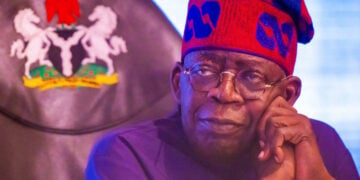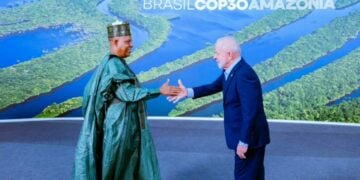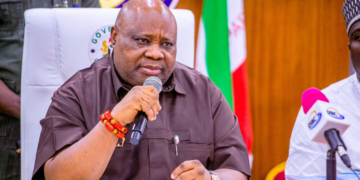The League of Northern Democrats (LND) has rejected the proposed parliamentary system of government for Nigeria and has urged Nigerians to continue with the presidential system.
Since the commencement of the constitution review by the National Assembly, there has been debate on the system of government Nigeria should adopt.
However, LND said there is no reason for the country to return to the parliamentary system, insisting that the presidential system of government offers many opportunities for Nigerians and Nigerians.
In a position paper delivered by the chairman of LND and former governor of Kano State, Mal Ibrahim Shekarau, at the National Dialogue on a Home-Grown Parliamentary System of Government on Monday at Yar’adua Centre, Abuja, they group made a strong case for retaining the presidential system in Nigeria.
“This system is uniquely suited to address the profound ethnic and religious diversity of our nation,” Shekarau said, adding that since the amalgamation in 1914, Nigeria has struggled with tensions between its varied ethnic groups, religious beliefs and regional identities.
“These divisions often manifest in political rivalries that threaten national unity. By requiring leaders to seek votes from a broad electorate, the presidential system compels them to prioritise the nation’s interests over narrow regional or ethnic concerns, thus fostering a shared sense of Nigerian identity and purpose.
“The British Parliamentary system of government adopted at independence, where Parliamentarians were elected only by their small constituencies, failed to advance national integration as it was comparatively easy for small ethnic and other factional interests to dominate local politics. Members elected from these constituencies will all too often be more concerned with the interest of the ethnic groups and localities they represent and thus carry these interests to the national level. This way, the politics of these local groups become the national politics. We saw this happen in the First Republic.
“In the presidential system, however, the president and vice president must win a nationwide election, and to do that they have to appeal to all ethnic groups and a host of other interests across the country. Because of this, the president and the vice president will less likely be controlled by specific ethnic and other special interest groups but by national interests,” Shekarau said.
The former Kano governor insisted that the presidential system, invented by the 1979 constitution and retained by the 1999 constitution, was meant to expand and extend the size of Nigeria’s democracy, thereby incorporating an ever-larger number of ethnic groups, factions, and other interest groups.
“In such a large democracy, no one group would ever be big enough to dominate the national political process. This would mean that national politics would have to be dominated by ever-shifting coalitions of ethnic, religious, regional and other interests rather than by one majority bloc. As a result, such a large constituency would be less prone to interest group capture at any given time. This means that the Presidency will tend to have a moderating effect on our ethnic, religious and sectional politics. Because of this, divisional barriers are being broken to advance national integration and unity,” Shekarau said.
In contrast, the parliamentary system, he said, emphasised regional constituencies, and can encourage localism and factionalism, as members are primarily accountable to specific ethnic or local groups.
“This structure, while effective in some homogeneous societies, risks entrenching ethnic and sectional loyalties in a pluralistic society like ours. As we saw in the past, the parliamentary model exacerbated regional divides, as legislators tended to prioritise the interests of their ethnic or regional groups at the expense of national integration.”
The LND leader further noted that the presidential model also incorporates the principle of federal character to ensure fair representation in a plural society, even as he decried the wastefulness and inefficiencies in the system.
Despite the stability it provides, Shekarau acknowledged the presidential system’s high costs and inefficiencies. To address this, he advocated for reforms: eliminating the bicameral legislative structure, limiting federal ministries to three per geopolitical zone, consolidating redundant agencies, and devolving power to states and local governments.
“It is a model that compels leaders to pursue national interests rather than parochial ones,” Shekarau concluded, noting that the suggested reforms would reduce governance costs and promote a more efficient system that serves Nigerians better..




